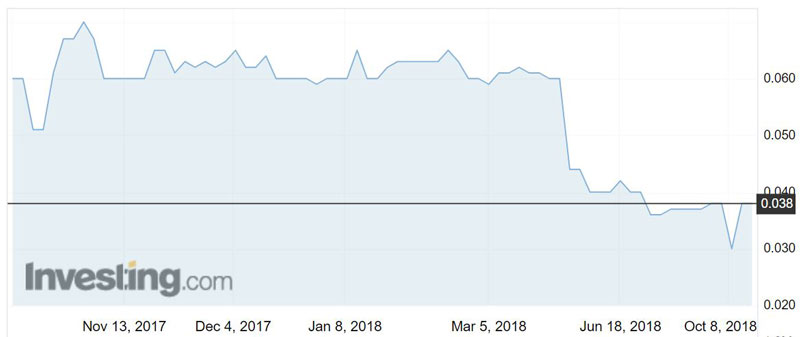NuEnergy drops 18pc after Indonesian gas sale falls through
Energy
NuEnergy Gas has been unable to get the sale of a stake in its Indonesian coal bed methane explorer across the line and has had to go back to the drawing board.
The shares (ASX:NGY) dropped 18 per cent to 3.1c this morning.
In the past year, NuEnergy’s share price has slumped as much as 62 per cent — from a 52-week high of 7.1c to a low of 2.7c.
Sydney-based NuEnergy had previously agreed to sell of a percentage of subsidiary Dart Energy (Indonesia) to private player EPI Energy.
But today NuEnergy told investors the parties were “not able to reach a mutual agreement on the commercial terms”.
Dart Energy (Indonesia) is an investment holding company, which through its subsidiaries, provides coal bed methane exploration services.
Coal bed methane — also known as coal seam gas — is a type of gas that’s found in coal beds.
It’s typically extracted using unconventional methods such as pumping out underground water and lowering pressure, allowing gas to detach from the coal and flow out.

“When we signed the MoU, EPI seemed to like our project, but I think it’s more so a corporate decision – how to move into our project,” NuEnergy chief Ian Wang told Stockhead.
“I haven’t really reviewed what exactly the cause behind it was, but what they said it’s very difficult to embark on commercial deal that would be mutually beneficial.”
Mr Wang said NuEnergy has restarted its hunt for another partner.
“We have some potential sources lined up, but it’s just at the preliminary stage,” he said.
NuEnergy has decided to go the joint venture route because raising capital in Australia is tough at the moment.
“I think the heyday has already gone in Australia,” Mr Wang said. “So to really raise the funds from Australia is very challenging.”
Mr Wang also believes Indonesia is not as attractive to investors as other jurisdictions.
“I think Indonesia as a whole may not be as appealing as Australia or even China,” he said.
According to NuEnergy, the Indonesian government are “strong advocates” for increasing domestic unconventional gas production, especially as conventional production continues to decline.